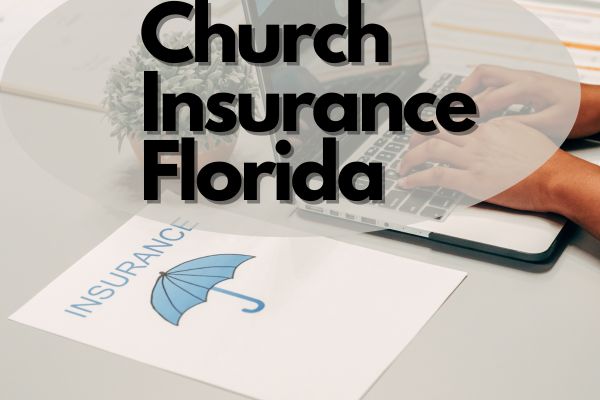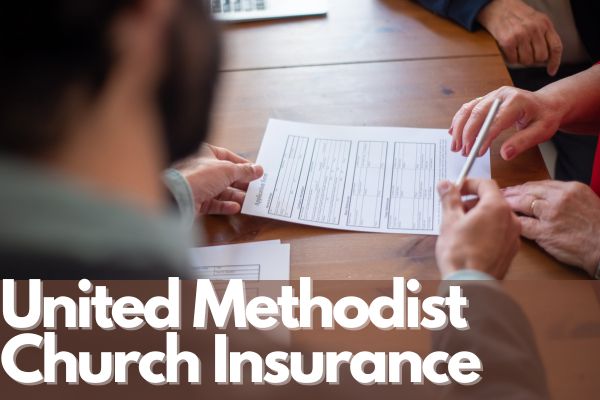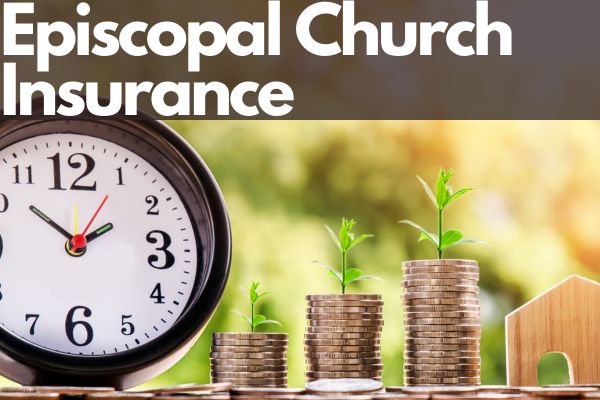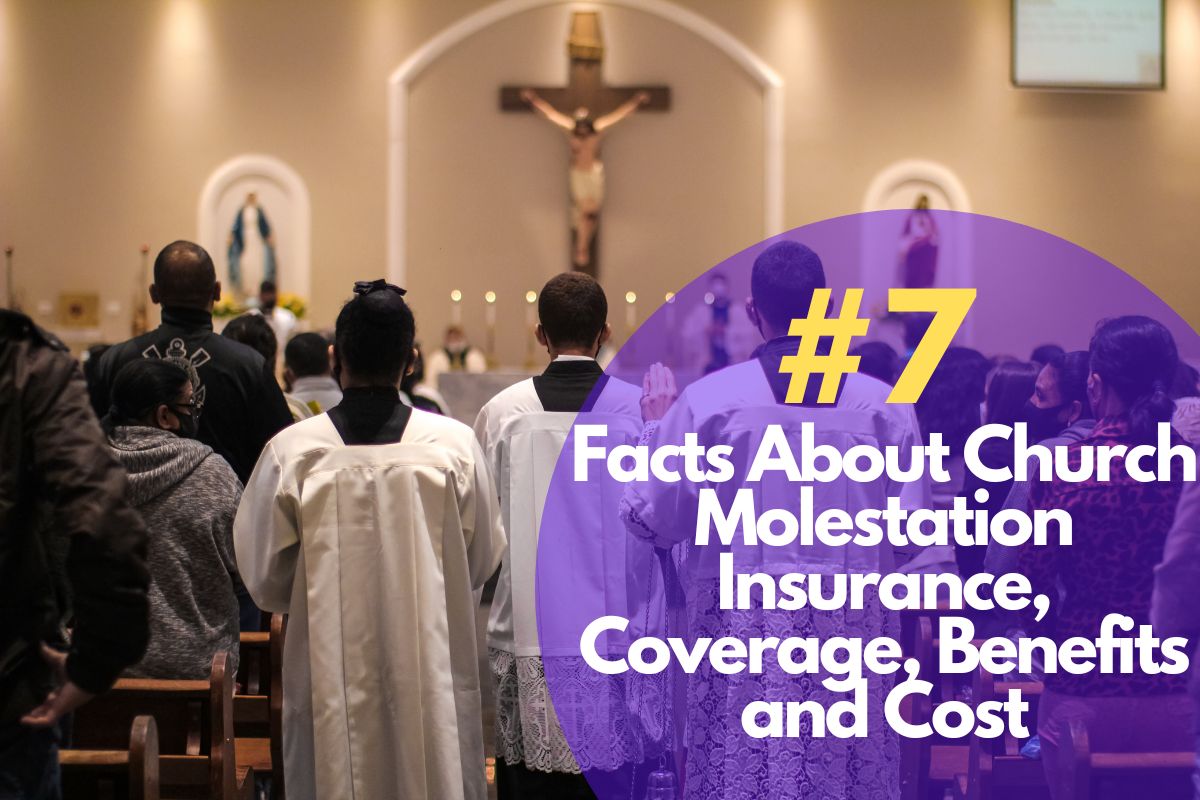Churches in Florida play an essential role in the lives of their congregations, providing spiritual guidance and support to their communities.
However, like any organization, churches face various risks that could jeopardize their operations and finances.
That’s where church insurance comes in. Church insurance Florida policies protect against potential liabilities, from property damage to accidents and injuries on church premises.
This article will explore the different types of church insurance available in Florida, the state’s insurance requirements for churches, and key considerations when choosing the right policy.
Whether you’re a small church or a large congregation, understanding church insurance in Florida is crucial for protecting your organization’s future.
Church Insurance Florida
Church insurance in Florida is a type of insurance that provides coverage to religious organizations, such as churches, temples, synagogues, and mosques, in the state of Florida.
This type of insurance typically covers property damage, liability, and other risks associated with operating a place of worship.
Church insurance policies in Florida can vary depending on the organization’s specific needs.
For example, a policy may include coverage for property damage caused by fire, theft, or natural disasters and liability coverage for accidents on the premises.
Some policies may also include coverage for the loss of income or additional expenses resulting from an interruption in the organization’s operations.
In addition to basic coverage, some Florida church insurance policies may offer additional options, such as coverage for sexual misconduct, employment practices liability, and directors and officers liability.
It’s important for religious organizations in Florida to work with an experienced insurance provider to ensure that they have the appropriate coverage to protect their property, assets, and their congregation and staff.
Importance of Church Insurance
1. Protects The Church’s Property
Church insurance policies typically include property insurance, which covers damage or loss to the church’s building, equipment, and other assets.
2. Covers Liability Claims
Church insurance policies also include liability coverage, which protects the church from claims of injury or property damage caused by the church’s activities or negligence.
3. Ensures The Safety of Church Members
With liability coverage, the church can be assured that they can cover medical expenses in case of accidents or injuries to their members or visitors.
4. Helps Maintain Financial Stability
In the event of a disaster or a liability claim, church insurance can provide financial support to help the church recover and continue its operations.
5. Covers Employee Injuries
Workers’ compensation insurance, which is included in church insurance policies, provides coverage for injured employees.
6. Protects Against Employment-Related Claims
Employment practices liability insurance included in church insurance policies covers the church against claims of wrongful termination, harassment, and discrimination.
7. Helps Meet Legal Requirements
Many states, including Florida, require churches to carry insurance coverage for certain liabilities, such as workers’ compensation.
8. Gives Peace Of Mind
Church insurance gives church leaders and members peace of mind, knowing their organization is protected against various risks.
9. Supports Community Outreach
With insurance protection, churches can continue to engage in community outreach programs, such as mission trips or events, without worrying about potential liabilities.
10. Helps Build Trust
By carrying insurance, churches can demonstrate their commitment to the safety and well-being of their members and the community, building trust and confidence in their organization.
Types Of Church Insurance
1. Property Insurance
This type of insurance covers the church’s physical property, including its buildings, equipment, furniture, and other assets. It protects against loss or damage due to fire, theft, vandalism, and natural disasters.
2. Liability Insurance
Liability insurance covers the church against claims of injury or property damage caused by the church’s activities or negligence. It includes general liability coverage, which protects the church against claims from visitors or members, and professional liability coverage, which protects church employees against claims arising from their professional services.
3. Workers’ Compensation Insurance
This type of insurance provides coverage for employees who are injured on the job. It covers medical expenses, lost wages, and rehabilitation costs.
4. Directors And Officers Insurance
Directors and officers insurance protects the church’s board members and officers against claims of mismanagement or wrongful acts. It covers legal fees, judgments, and settlements.
5. Employment Practices Liability Insurance
This type protects the church against claims of wrongful termination, harassment, and employee discrimination. It covers legal fees, settlements, and damages.
6. Cyber Liability Insurance
This insurance covers the church in case of a data breach or other cyber attack. It covers expenses related to data recovery, liability claims, and notification costs.
7. Event Insurance
Event insurance covers the church’s liability for injuries or property damage during church-sponsored events, such as picnics, fundraisers, and concerts.
Overall, church insurance policies are tailored to the church’s specific needs and can be customized to include a combination of coverage types based on the church’s activities, size, and risks.
Requirements For Florida Church Insurance
Here are some requirements for church insurance in Florida:
1. Workers’ Compensation Insurance
Florida law requires all employers, including churches, to carry workers’ compensation insurance coverage for their employees. This coverage benefits employees injured or ill while on the job.
2. Liability Insurance
While Florida does not have a specific law requiring churches to carry liability insurance, it is generally recommended that they do so to protect themselves against claims of injury or property damage.
3. Auto Insurance
Churches that own or operate vehicles in Florida must carry auto insurance coverage, including liability coverage for bodily injury and property damage caused by the car.
4. Property Insurance
Although not legally required, most lenders require churches to carry insurance coverage to protect their buildings and assets.
5. Flood Insurance
In Florida, flood insurance is often recommended for churches in flood-prone areas. While it is not required by law, it may be required by lenders or mortgage companies.
It is important to note that the Florida churches’ insurance requirements may vary depending on the church’s size, activities, and other factors.
It is recommended that churches consult with an experienced insurance agent to determine the appropriate types and coverage levels needed to protect their organization adequately.
Factors To Consider When Choosing The Right Church Insurance Policy
1. Size Of The Church
The size of the church, including the number of members, employees, and volunteers, will impact the coverage needed.
2. Activities Of The Church
The church’s activities, such as community outreach, youth programs, and events, will affect the types and levels of coverage needed.
3. Location Of The Church
The church’s location, including the risk of natural disasters, crime rates, and environmental hazards, will impact the types and levels of coverage needed.
4. Budget
The church’s budget will determine the level of coverage that can be afforded. It is essential to balance the need for adequate coverage with the cost of the policy.
5. Insurance Company Reputation
The insurance company’s reputation and financial stability is an essential factors to consider, as they will impact the reliability of coverage and the company’s ability to pay claims.
6. Deductible
The deductible, or the amount the church is responsible for paying before insurance coverage kicks in, will impact the cost of the policy.
7. Policy Terms and Conditions
It is essential to review the policy terms and conditions carefully, including coverage limits, exclusions, and endorsements, to ensure that the policy meets the church’s specific needs.
8. Customer Service
The level of customer service the insurance company provides, including responsiveness, accessibility, and expertise, should also be considered.
9. Insurance Agent Experience
The experience and expertise of the insurance agent in working with churches and understanding their unique needs is an essential factor to consider.
Overall, it is essential to carefully evaluate the church’s needs and compare insurance policies from multiple providers to find the right coverage at an affordable price.
How To Get Church Insurance In Florida
To get church insurance in Florida, follow these steps:
1. Assess The Church’s Insurance Needs
Determine the types and levels of insurance coverage needed based on the church’s size, activities, location, and budget.
2. Research Insurance Companies
Research insurance companies that specialize in providing insurance coverage for churches. Look for companies with good reputations, financial stability, and experience in the Florida market.
3. Get Quotes
Contact multiple insurance companies to obtain quotes for insurance coverage. Provide detailed information about the church’s insurance needs to ensure accurate quotes.
4. Compare Policies
Compare the policies and quotes provided by each insurance company. Evaluate each policy’s coverage limits, deductibles, terms and conditions, and customer service.
5. Select A Policy
Select the policy that best meets the church’s insurance needs at an affordable price. Work with the insurance agent to customize the procedure and ensure all required coverage is included.
6. Purchase The Policy
Once a policy is selected, purchase the policy by signing a contract and making the required premium payments.
7. Review And Update The Policy
It is essential to review the policy regularly and update the coverage as needed to ensure that the church remains adequately protected.
Working with an experienced insurance agent who can guide the church through obtaining the right insurance coverage is recommended.
The agent can advise, answer questions, and help the church select the right insurance policy.
How To Renew Church Insurance Policies
To renew church insurance policies, follow these steps:
1. Review The Existing Policy
Review the current approach to ensure it meets the church’s needs. Evaluate any changes in the church’s size, activities, or location that may impact the insurance coverage needed.
2. Contact The Insurance Agent
Contact the insurance agent or insurance company to begin the renewal process. Provide any updated information and request a renewal quote.
3. Review The Renewal Quote
Review the renewal quote carefully to ensure the coverage and premium are still appropriate for the church’s needs.
4. Make Any Necessary Changes
If any changes are needed, work with the insurance agent to adjust the policy, such as increasing coverage limits or adding new endorsements.
5. Sign The Renewal Documents
Once the policy has been reviewed and any necessary changes have been made, sign the renewal documents and make any required premium payments.
6. Receive The Renewal Policy
The insurance company will issue the renewed policy after the renewal documents have been signed and premium payments have been made.
7. Review And Update the Policy
Review the renewed policy carefully to ensure that all required coverage is included and that the premium payment is accurate.
Update the policy as needed to ensure that the church remains adequately protected.
It is recommended to start the renewal process well before the policy expiration date to ensure adequate time to review the policy and make any necessary changes.
Conclusion
Church insurance is a vital investment for any church in Florida. It protects against unforeseen events that could cause damage to the church’s property, harm its members, or result in legal liabilities.
As discussed, the types of church insurance policies available include property, liability, workers’ compensation, and directors and officers liability insurance.
It is essential to carefully consider the church’s insurance needs and work with an experienced insurance agent to select the proper coverage.
Once the policy is in place, regular reviews and updates should be conducted to ensure adequate range remains.
By investing in the right church insurance policy, Florida churches can have peace of mind knowing they are protected against the unexpected.






